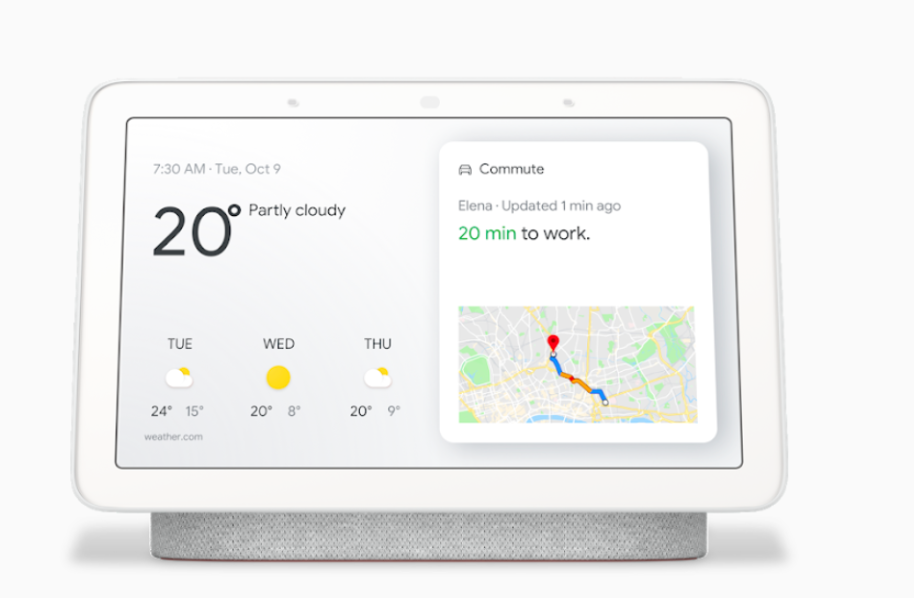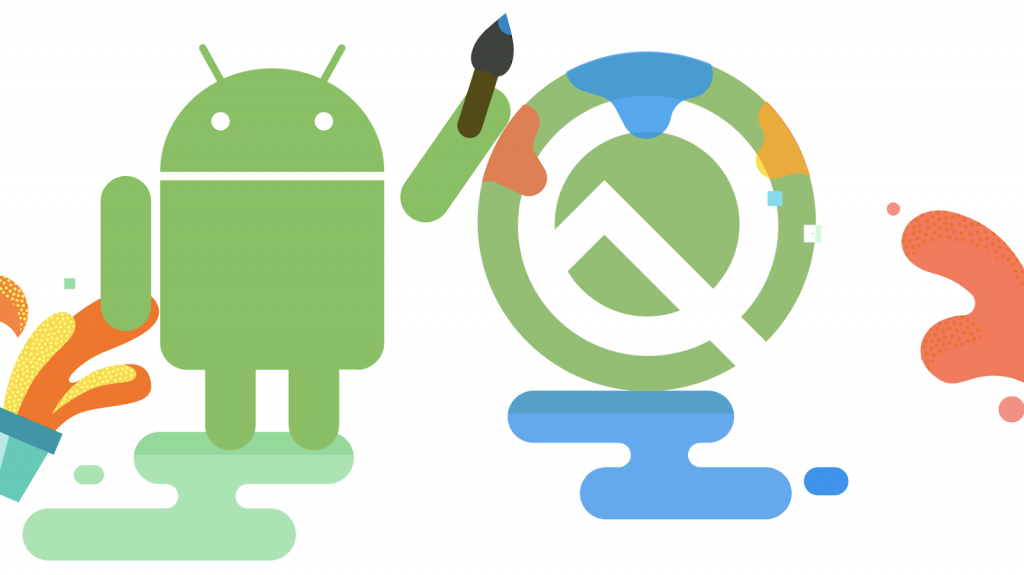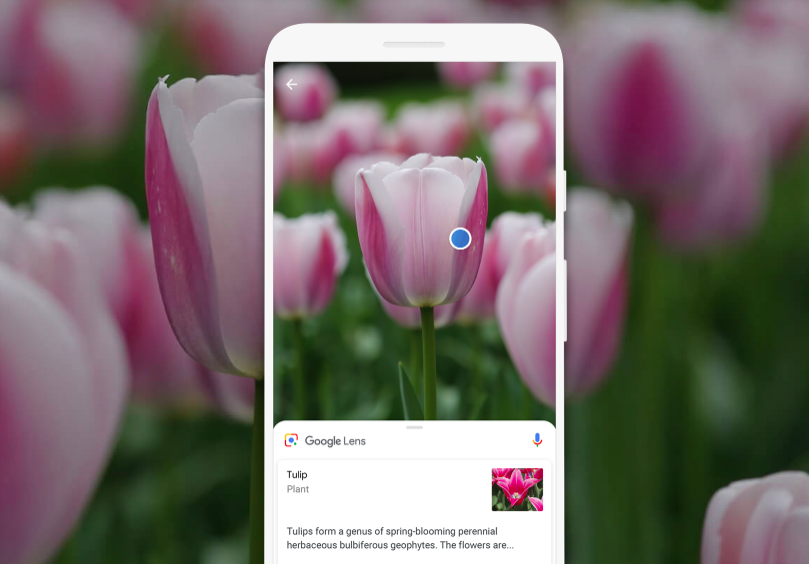Google I/O 2019 was another successful event for the tech giant as thousands of developers and IT decision makers from around the world gathered in Mountain View, Calif., from May 7 to May 9. In a previous story, we looked at the new budget-friendly Pixel handsets Google unveiled at this year’s Google I/O 2019. But the three-day conference had much more to offer. Google I/O 2019 was also the venue for the first ever hands-on look at the much anticipated Nest Hub Smart speaker, which comes with a 10-inch screen and a security camera. The company also used the event as an opportunity to unveil some interesting changes and upgrades in its software arena, including the upcoming Android Q as well as Google Search, Google Lens, Google Duplex, Google Maps, and more. This article is going to have all the top announcements made at Google I/O 2019 apart from the launch of Google Pixel 3a and the Pixel 3a XL.
Nest Hub Max debuts Google I/O 2019
Until very recently, Google Home Hub was the company’s platform for easy smart device management. However, at Google I/O 2019, the Google Home line was officially rebranded as Google Nest Hub. Nest Hub is the company’s newest lineup of devices to perform the tasks of the Home Hub. Google Nest Hub Max is the company’s newest product, and it will serve as the linchpin to control a bevy of home security systems. The Nest Hub Max is a feature-packed smart home device equipped with a smart display, wide-angle camera lens for security, speakers and mics for managing audio, gesture controls, and more. Speaking about the features the device has to offer, it can be considered as a combined substitute for the Nest Camera, Google Home Hub, and the Google Home Max.

The device comes with a 10-inch smart display and allows users to make video calls using a wide array of already available video calling apps. Those who have privacy concerns can manually disable the mic and the camera on the device. The device also comes with security features such as voice and facial recognition and can filter content and information based on the user’s requirements. The device can also livestream video content and can be used for multimedia purposes as well.
The Nest Hub Max will be available this summer and is going sell for $229. The original Google Home Hub is also receiving a price cut to $129 following the Nest Hub Max’s launch. This rebranding, however, has some implications for longtime users of Nest products. (Google bought Nest for $3.2 billion five years ago.)
Android Q: Beta 3 is rolling out
Google launched the Beta 3 version of its upcoming Android Q at I/O 2019. The company also revealed some stats about how many devices use Android OS followed by giving us a look at extended features in Android Q. Google said that there are over 2.5 billion devices running on Android OS, noting that the ecosystem consists of not just smartphones but TVs, an in-car navigation system, smart home devices, wearables, and more.
The company announced that the beta program for Android Q is now available for 21 more devices from third-party makers including Nokia, OnePlus, Huawei, and Xiaomi. The Beta 3 variant of Android Q comes with a new “dark theme.” Although this feature was included in the earlier beta versions, there was no way to enable it. This feature will not just satisfy users who like an all-black interface, but will also please users who wish to get a little extra battery life.

Google has also added an all-new “focus mode” as part of its Digital WellBeing. This mode will allow users to select the particular apps that they don’t want to use at a particular time. Those selected apps will be disabled during those selected times. Parents can soon link their Google accounts with their kids’ accounts and use focus mode to restrict or reduce the use of certain apps.
With security and privacy being major aspects of importance for all users — but especially for businesses — Android Q is coming with several features such as an incognito mode for Maps, TSLV3 encryption even for low-end devices, restrictions for location usage, and more. More features and information about Android Q can be found out here.
Google Duplex: A new update
Google Duplex was one of the biggest announcements made at the Google I/O 2018. To remind everyone about Google Duplex, it is the technology that uses AI and can be employed to make humanlike calls on the users’ behalf to make reservations or bookings.
At the I/O 2019, Google announced a web version of the application, called Duplex on the Web. This feature allows the software to fill web forms on the user’s behalf by gathering saved information from the history. For instance, users can use Google Duplex to auto-fill form data for movie bookings, travel bookings, and more. The company also made it clear that users can check or edit the data provided by Duplex before proceeding.
Google Assistant: Even smarter
Google has been working on a solution to streamline and reduce the latency involved in getting a response from the voice inputs users give to Google Assistant. Currently, every voice command goes through three different processing models to access and analyze the input. This data is over 100GB in size and is stored in Google’s servers and is accessed by Google Assistant over the cloud.
Google said that they have found an efficient way to compress this data needed for Google Assistant to about 500MB. The company said it is planning to add this 500MB of data on the users’ devices to provide much faster, efficient, and prompt responses.

Google Assistant is also going to get smarter in general sense by helping users to reply to messages, help them write emails, insert multimedia into the messages, and more. It is also going to come with a driving mode, which will enable drivers to take calls and control multimedia without leaving the navigation screen. And finally, users will soon be able to stop the alarm by just saying “Stop!” instead of the complete “Hey Google” prompt.
Google Lens: Fancier new features
Google Lens is arguably the fanciest yet most useful feature in Google’s software arsenal. The software uses image recognition technology to deliver information about what you capture using the device’s camera. Users can also get real-time information using Google Lens.

At Google I/O 2019, the company added a couple of new and even fancier features to Google Lens. The app will now let users point the camera at the menu item in a restaurant and get recommendations about what they should After the meal, they can point at the bill and the app will help them calculate the tip. And “going Dutch” is much easier now because Lens will split the bill among all the diners so you will know your share of the check. The company also said that it is going to partner with various recipe providers worldwide to allow Google Lens to provide video tutorials when pointed at a written recipe.
Live Caption: A sweet deal
Android Q is going to come with a new feature known as “live capture,” which will stream live captions to all videos. Whenever a user is watching a video, be it on YouTube, the phone’s gallery, web browser, while on video calls, or in any other application, Google is going to add subtitles to what is being said. The company mentioned that this feature is going to greatly benefit the visually impaired or for people who wish to keep the volume low. Google said that this new feature will also provide live captions for an ongoing video call, which certainly is an interesting feature.
There was at least one expected announcement at Google I/O 2019 that didn’t happen: We did not get to hear or see anything about the much-anticipated Pixel smartwatch. And there were no new Google tablets or laptops announced. But considering all these software updates and features we profiled here, the hype for the next Pixel 4 series of smartphones is certainly on the rise.
Images: Google



